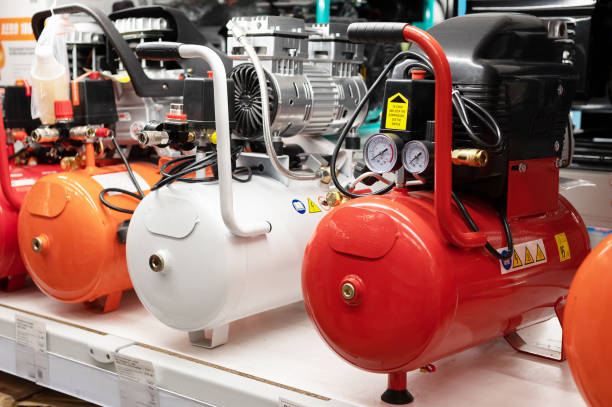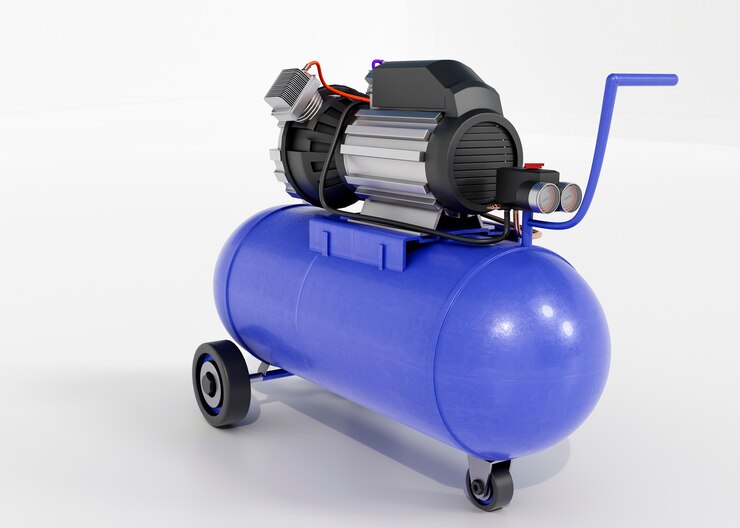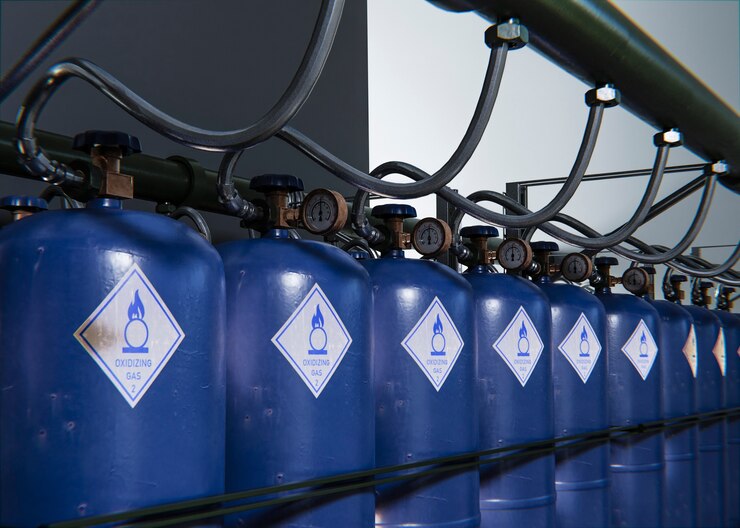Choosing the Right Hydrogen Compressor: A Buyer’s Guide
The Powerhouse of the Hydrogen Economy: A Comprehensive Guide to Hydrogen Compressor
The shift to a clean energy future is likely to involve a significant role for hydrogen, which is the most abundant and lightest element in the universe. Fuel cell electric vehicles (FCEVs) that run on hydrogen present a viable substitute for conventional gasoline-powered automobiles, with the only byproduct being water vapour. But the hydrogen compressor, a piece of technology that makes it possible to compress hydrogen safely and effectively, is an essential component of the jigsaw.
This in-depth tutorial delves further into the realm of these compressors, examining their inner workings, various varieties, uses, and things to think about when choosing the best one for you. Through comprehension of these fundamental elements, we may advance the hydrogen economy and realize the complete possibilities of this eco-friendly and sustainable energy source.
Unveiling the Core: How Hydrogen Compressors Work
In contrast to conventional air compressors that work using pistons, hydrogen compressor uses a variety of techniques to produce hydrogen at high pressure. Below is an explanation of the basic ideas underlying some of the more popular kinds:
- Diaphragm Hydrogen Compressor:
The compression chamber and crankcase are separated by a flexible diaphragm. The diaphragm draws and compresses hydrogen as the crankshaft turns by expanding and contracting. With their oil-free operation, these compressors are perfect for applications that call for hydrogen with a high purity.
- Piston Hydrogen Compressor:
A piston compresses hydrogen gas by moving back and forth inside a cylinder, much like in an automobile engine. Although piston compressors are renowned for their dependability and capacity to operate at high pressures, they may need to be lubricated with oil, which raises the possibility of contamination.
- Centrifugal Hydrogen Compressor:
The hydrogen gas is given velocity by rapidly spinning impellers, which then diffuse the gas into pressure. Large-scale hydrogen refuelling facilities are a good fit for centrifugal compressors because of their enormous flow rates.
- Screw Hydrogen Compressor:
Hydrogen is compressed and trapped by rotating intermeshing screws located within the compressor casing in a screw hydrogen compressor. The flow rate and pressure capacities of these adaptable compressors are balanced.
- Electrochemical Hydrogen Compressor:
An electrical current and a membrane are used in this relatively new technology to selectively allow hydrogen ions to flow through, thereby compressing the gas. These compressors are still in the development stage and have a high efficiency.
A Wide Range of Uses: Highlights of Hydrogen Compressor Performance
The hydrogen compressor is a critical component that is necessary for hydrogen to function as the fuel of the future. By compressing hydrogen gas to high pressures and facilitating its effective storage, transportation, and use in a variety of applications, these workhorses drive the hydrogen economy. Let’s examine a few notable instances when these compressors shine:
- The essential components of hydrogen filling stations:
High-pressure hydrogen (usually delivered at 700 bar) must be delivered quickly and effectively to fuel a hydrogen-powered vehicle. To facilitate the smooth refuelling of FCEVs and pave the path for clean transportation in the future, hydrogen compressors are used.
- Powering fuel cell electric vehicles (FCEVs):
Fuel cell electric vehicles (FCEVs) are powered by compressors; although FCEVs don’t use compressors directly, their supporting infrastructure does. Hydrogen compressors are necessary for producing and storing hydrogen at facilities that produce and store the fuel for FCEVs.
- Protectors of hydrogen storage:
High-pressure tanks are necessary for effective hydrogen storage. Compressing hydrogen gas for safe, compact storage at these facilities—where it is readily available for use by a variety of industries—is a critical function of hydrogen compressors.
- A powerhouse of chemical processing:
Hydrogen is essential to many chemical reactions. Hydrogen compressors ensure that hydrogen is consistently delivered to these vital industrial processes at the necessary pressure and flow rate.
- Beyond oil and gas:
Hydrogen is finding new uses in this industry despite being historically linked to the production of oil and gas. Cleaner energy generation can be aided by the employment of hydrogen compressors in procedures like hydrocracking and desulfurization.
- Precision in electronics manufacturing:
The fabrication of some electronic components needs a regulated hydrogen atmosphere. In these production processes, hydrogen compressors aid in maintaining the appropriate pressure and purity of hydrogen gas, guaranteeing the dependability and quality of electronic components.
- Powering the future of ammonia production:
Ammonia (NH3) is an industrial chemical and fertilizer. Hydrogen compressors provide the high-pressure hydrogen required for the Haber-Bosch process, which is the main way to produce ammonia.
This is only a small sample of the enormous potential of these compressors; these devices are essential to the emerging hydrogen economy and can power everything from portable fuel cells to hydrogen-fueled aircraft.
The Scale: Exposing the Advantages of Hydrogen Compressors
The heroes of the hydrogen economy are hydrogen compressor, which is essential to making this sustainable and clean fuel possible to use effectively. But why are these machines worth so much money? Now let’s examine the main advantages of hydrogen compressors that make them more appealing:
- Unmatched Efficiency:
Contemporary compressors have remarkably high efficiencies, frequently outperforming conventional air compressors. In the long term, this results in significant cost savings on energy bills, which makes them a financially appealing choice.

- Solid as a rock Dependability:
These compressors have a sturdy construction. Reliability and low downtime are guaranteed by robust designs and continuous duty capacities. This reduces disturbances to your business and results in a steady supply of hydrogen for your operations.
- First and foremost, safety.
Although a clean energy source, hydrogen has the potential to explode. Hydrogen compressors prioritize the safety of both people and the environment by incorporating cutting-edge safety features that guarantee the safe and controlled compression of hydrogen.
- Oil-Free Options:
Diaphragm and electrochemical compressors provide the vital advantage of oil-free operation for applications needing ultra-pure hydrogen. Because of this, there is no longer any chance of oil contaminating compressed hydrogen, which makes it perfect for use in delicate processes like fuel cell technology.
- Versatility for Various Needs:
Hydrogen compressor are available in a range of designs, such as single-stage and two-stage models, as well as oil-injected and oil-free versions. This enables you to locate the ideal match for your particular application, be it the clean air requirements of the electronics sector or the high-pressure demands of hydrogen refuelling stations.
- Lower Maintenance Costs:
These compressors often require less frequent maintenance than certain older choices, however routine maintenance is always important for any equipment. As a result, servicing your compressed hydrogen system will cost less and take less time, freeing you up to concentrate on your primary business activities.
Selecting this compressor is an investment in operational flexibility, safety, dependability, and efficiency rather than merely acquiring a piece of equipment. These advantages support an economical and sustainable hydrogen ecology.
The Weighing Scale: Things to Think About When Selecting a Compressor for Hydrogen
The engine of the hydrogen economy is this compressor, but choosing the appropriate one takes significant thought. It’s important to consider all the aspects that could affect your selection, just like with any investment. The following list of important factors will help you select the ideal hydrogen compressor for your needs:
- Application Requirements:
Knowing your particular application is the first step. What hydrogen flow rate and pressure are you looking for? Take into account elements such as the requirement for high-pressure, quick-fill fuelling stations, whereas chemical processing may place a higher priority on steady flow rates at lower pressures.
- Compressor Type:
Every type of hydrogen compressor has its benefits. While piston compressors work well in high-pressure applications, diaphragm compressors are best suited for high-purity, oil-free applications. Refuelling stations and other large-scale, high-flow applications are ideal for centrifugal compressors. Screw compressors are adaptable for a range of applications because they provide a good balance between pressure and flow. Although they are a new technology with great efficiency potential, electrochemical compressors might not be appropriate for every application just yet.
- Oil-injected vs. Oil-free:
Oil-injected compressors are more affordable initially and are a good fit for a wide range of applications when compared to oil-free compressors. On the other hand, applications like fuel cell technology that need ultra-pure hydrogen need oil-free compressors. Think about the compromise between purity criteria and cost.
- Safety Features:
The gas hydrogen can blow up. Seek for compressors equipped with strong safety features such as leak detection systems, explosion-proof enclosures, and pressure relief valves. Put safety first to protect the environment and the people.
- Maintenance Requirements:
The maintenance needs of various compressor types differ. Consider each option’s scheduled maintenance frequency and complexity. When making your decision, take your resources and budget into account.
- Reputation and Service:
Select a trustworthy manufacturer with a track record of producing durable, dependable hydrogen compressors. To guarantee continuous support for your compressor, look for businesses that offer robust after-sales service and easily accessible spare parts.
Conclusion:
With clients in Asia, America, Africa, Europe, and Australia, LEIYAO compressor has a global presence. Equipped with a deep comprehension of the demands and obstacles faced by the compressor sector, we are committed to establishing ourselves as a prominent player in this domain.



